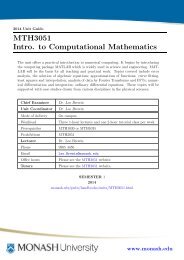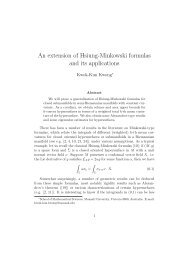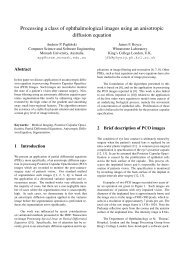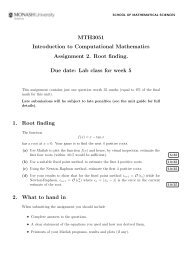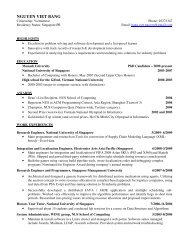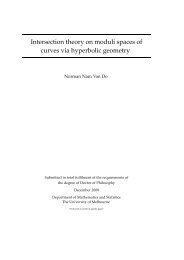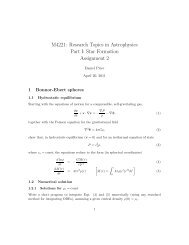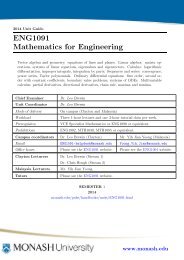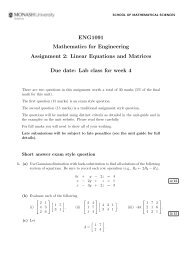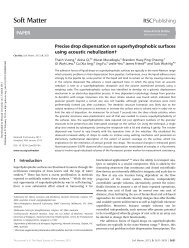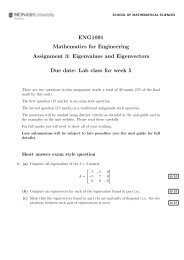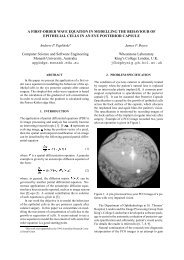MTH3051 Introduction to Computational Mathematics - User Web ...
MTH3051 Introduction to Computational Mathematics - User Web ...
MTH3051 Introduction to Computational Mathematics - User Web ...
You also want an ePaper? Increase the reach of your titles
YUMPU automatically turns print PDFs into web optimized ePapers that Google loves.
School of Mathematical Sciences<br />
Monash University<br />
which we re-write as<br />
x n+1 − x = g ′ (x)(x n − x) + O ( (x n − x) 2)<br />
Now notice that x n − x is the error in our approximation at iteration n. So let’s define<br />
the error at each iteration by<br />
ɛ n = |x n − x|<br />
then we have<br />
ɛ n+1 = |g ′ (x)|ɛ n + O ( )<br />
ɛ 2 n<br />
Notice that if |g ′ (x)| < 1 then successive errors will be smaller than the previous errors,<br />
that is the iterations will converge. On the other hand, if |g ′ (x)| > 1 the errors will grow<br />
and the sequence diverges. The only other case is when |g ′ (x)| = 1 and in this case the<br />
errors neither grow nor decay.<br />
Note also that the above arguments all hinge on the assumption that we are near the<br />
fixed point. All bets are off if we have a bad initial guess (i.e. x 1 is far from the fixed<br />
point). However once the sequence gets close <strong>to</strong> the fixed point (if we should be so lucky)<br />
then the above arguments do apply.<br />
Fixed Point Iteration Convergence<br />
Given an x 1 close <strong>to</strong> the fixed point x = g(x), then the sequence<br />
x n+1 = g(x n ) n = 1, 2, 3, · · ·<br />
Converges when |g ′ (x)| < 1<br />
Diverges when |g ′ (x)| > 1<br />
Useless when |g ′ (x)| = 1<br />
Example 4.1<br />
Verify, using the above conditions, that the scheme x n+1 = e −xn<br />
scheme x n+1 = − log(x n ) should diverge.<br />
will converge, while the<br />
4.2.5 Programming notes<br />
Since we know that the fixed point iterations might fail we must take care when we write<br />
our computer programs. We need <strong>to</strong> ask ourselves what can go wrong in the calculations<br />
(<strong>to</strong>o many iterations? not converging? stalled? etc.) and put appropriate tests in our<br />
programs. Here is a very rough sketch of a program that could be used for any algorithm<br />
<strong>to</strong> solve 0 = f(x) for x.<br />
16-Feb-2014 44



